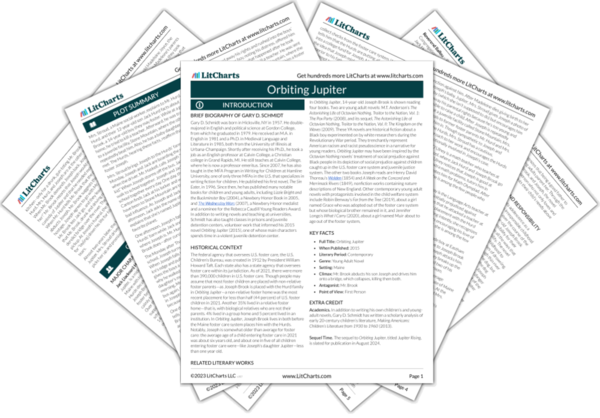Mrs. Hurd and Mr. Hurd demonstrate good parenting in this scene: Mrs. Hurd takes immediate responsibility for the boys’ physical safety, making sure they warm up, while Mr. Hurd disciplines the boys, reminding them of what good behavior is. When Joseph tries to save Jack from punishment and take all the blame himself, it shows Joseph’s honesty, his appreciation for Jack’s help, and the boys’ growing friendship.
